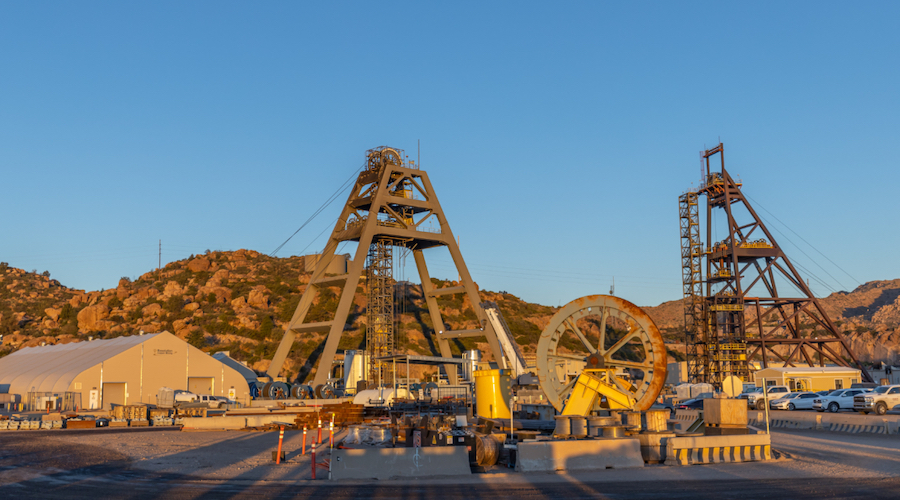US Supreme Court rejects Apache appeal to block Rio Tinto’s Resolution mine

The US Supreme Court declined on Tuesday to hear an appeal by the Apache Stronghold seeking to block the development of the Resolution Copper mine in Arizona. The mine is a joint venture between Rio Tinto (ASX, LON, NYSE: RIO) and BHP (ASX: BHP).
The advocacy group, comprising members of the San Carlos Apache tribe of southeastern Arizona and conservationists, challenged a 2024 lower court decision that permitted a federal land swap allowing the mining companies to acquire land considered sacred by the Apache for the mine project.
A federal judge in Arizona had temporarily halted the land transfer on May 9, pending the outcome of the Supreme Court appeal.
The Resolution Copper project is 55% owned by Rio Tinto and 45% by BHP, with Rio serving as the operator.
The companies have so far invested over $2 billion into the project, which is poised to become North America’s largest copper mine. It contains the third-largest known copper deposit globally, and could meet over a quarter of US copper demand for decades.
Apache Stronghold first filed suit in 2021, claiming the project violates constitutional and statutory protections for religious freedom. They argue the mine would destroy the Oak Flat, known as Chi’chil Biłdagoteel in the Apache language, a sacred site where Western Apaches have conducted ceremonies for generations, including a traditional four-day coming-of-age ritual for young women.
The group also says the mine would violate an 1852 treaty in which the US government promised to protect Apache lands and ensure the tribe’s “permanent prosperity and happiness.”
Congress authorized the land swap as part of a 2014 defense spending bill signed by then-President Barack Obama. The legislation allowed Rio Tinto and BHP to exchange private lands for Oak Flat, located about 70 miles (113 km) east of Phoenix.
The transfer was contingent on the completion of an environmental impact statement, which was released in January 2021, during the final days of the first Trump administration. However, in March 2021, the Biden administration withdrew the statement, halting the transfer temporarily.
The US Forest Service is expected to reissue the environmental report, potentially allowing the land swap to proceed as early as June 16.
Copper ambitions
Rio Tinto is ramping up its copper portfolio to meet growing global demand, which analysts predict will soon outpace supply.
The company’s Oyu Tolgoi mine in Mongolia began underground production in 2023 and is projected to become the world’s fourth-largest copper mine by 2030.
In Peru, Rio Tinto has partnered with Chile’s state-owned Codelco and Canada’s First Quantum Minerals to develop the La Granja project, one of the world’s largest untapped copper deposits.
Rio is also investing in cleaner extraction technologies, including Nuton—a bioleaching process developed with Arizona Sonoran Copper (TSX: ASCU)—to recover copper from tailings and low-grade ores.
(With files from Reuters and Bloomberg)
{{ commodity.name }}
{{ post.title }}
{{ post.date }}




2 Comments
Diana Morrison
Questions: What exactly will happen to the area considered sacred? Will it be paved over, or what? Are ceremonies being held at present time? How often? When last? Is there something particular about the site other than the fact that ceremonies are held there? Are there examples of such sites being “traded” in the past?
How would mining be done? Strip? Tunnels? How much surface will be affected? Is there any way to mine without despoiling the contested area? Are any local people in favor of the mine?
Cecilia Jamasmie
Hello Diana,
Lots of important questions! To the best of our knowledge, the proposed mining method, known as block caving, involves extracting ore from deep underground, which causes the surface above to gradually collapse. In terms of ceremonies, Oak Flat remains an active site for Apache religious events. These include Sunrise Dances, which are coming-of-age ceremonies for young women, as well as sweats and other spiritual rites. The frequency of these ceremonies varies. Oak Flat is also home to ancient Emory oak groves, which produce acorns used in traditional Apache foods and medicines.
An important part of locals and organizations support the mine, due to its potential economic benefits. Resolution is expected to contribute $1 billion annually to Arizona’s economy and create thousands of jobs . In March 2024, Resolution Copper and local stakeholders signed a “Good Neighbor Agreement” to promote open communication and address community concerns.
Hope this helps!